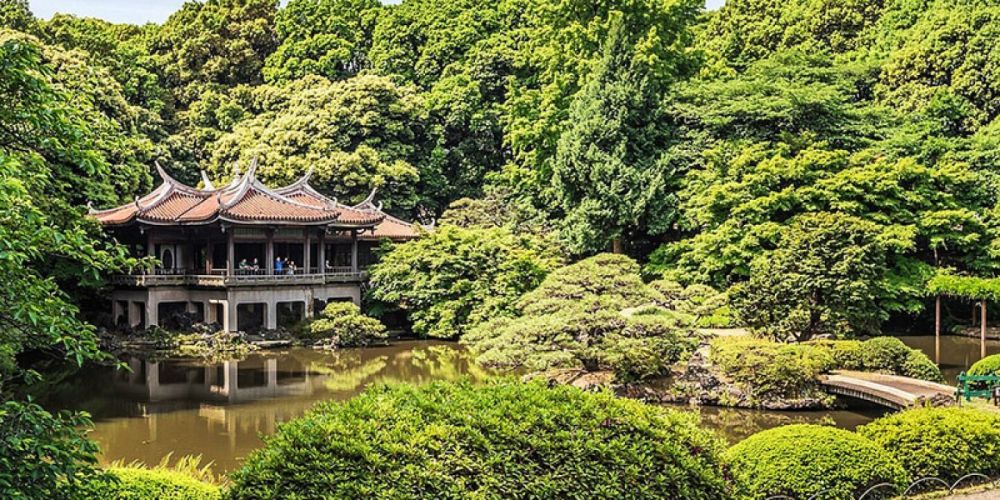

Shinjuku Gyoen National Garden, nestled in the bustling district of Shinjuku in Tokyo, Japan, is a serene escape from the city's fast-paced environment. Its history as a destination for both tourists and locals dates back to the Edo period, making it an area rich in historical significance and cultural beauty.
The origins of Shinjuku Gyosei can be traced back to the 17th century when it was constructed as a feudal lord's residence. However, it was in the year 1906 when it officially opened its doors to the public, transforming into a national garden. Originally designed for the imperial family's use as an entertainment and guest accommodation area, it later evolved into a place where people could enjoy a variety of plants and scenic landscapes all year round.
After considerable damage during World War II, Shinjuku Gyoen was redesigned and reopened in 1949 as a national garden. Since then, it has become one of Tokyo's most famous and beloved parks. It has attracted visitors from all around the world who are drawn to its blend of traditional Japanese, English, and French garden designs as well as its remarkable greenhouse and historical teahouses.
Contemporary visitors to Shinjuku Gyoen can enjoy the vibrant cherry blossom displays in spring, which is one of the park's biggest tourist draws. Autumn also sees large numbers of visitors, who come to admire the stunning fall foliage. The garden features more than 20,000 trees, including approximately 1,500 cherry trees which bloom into a variety of hues, creating a spectacular and colorful tapestry.
In recent years, tourism trends have shown how Shinjuku Gyoen has embraced the digital age. The use of digital maps and apps has made navigating the sprawling 58.3 hectares more accessible for tourists. Social media also plays a significant role in the way visitors engage with the garden, sharing photos and experiences that contribute to the park's global popularity.
The blending of Shinjuku Gyoen's historical past with the modern city that surrounds it gives the park a unique allure. With spaces dedicated to quiet reflection alongside areas for family activities, Shinjuku Gyoen maintains a balance between the need for preservation and providing an open space for public enjoyment.
As a verdant oasis in the heart of one of the world's most dynamic cities, Shinjuku Gyoen National Garden stands as a testament to Japan's commitment to preserving natural beauty and cultural heritage. Its role in the city's tourism landscape is secured by its deep historical roots and its ability to adapt to the expectations of modern travelers, ensuring that it will continue to be a cherished destination for decades to come.